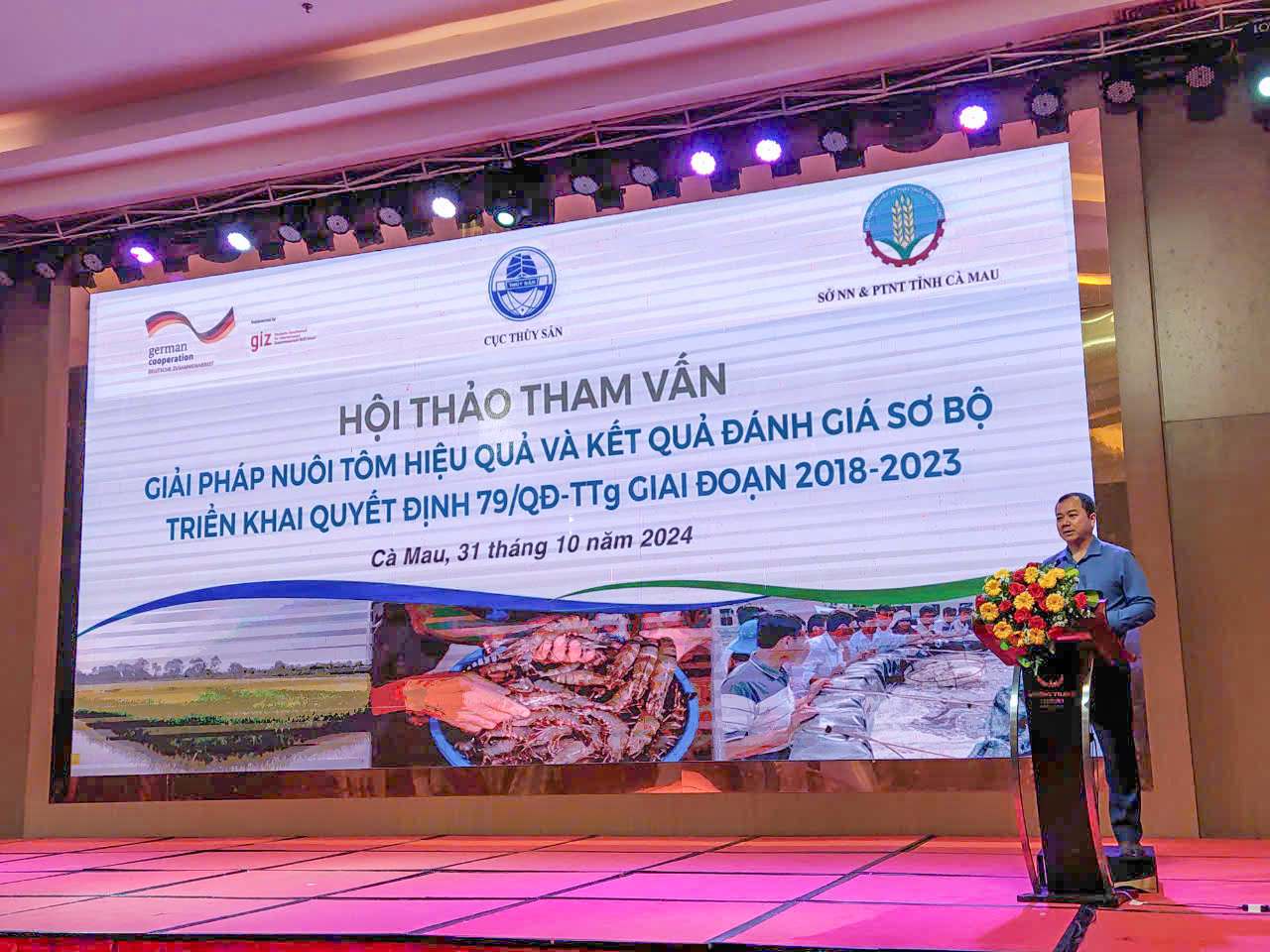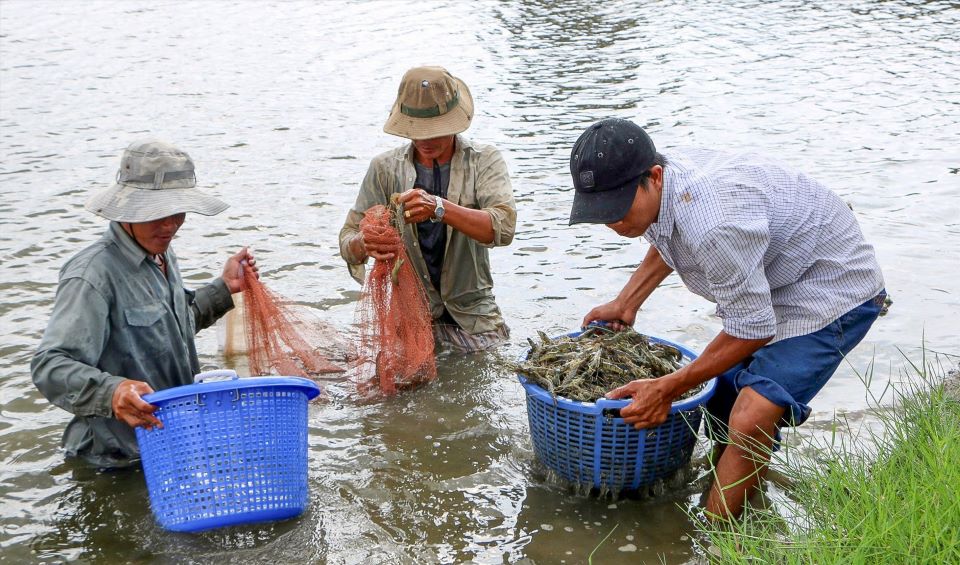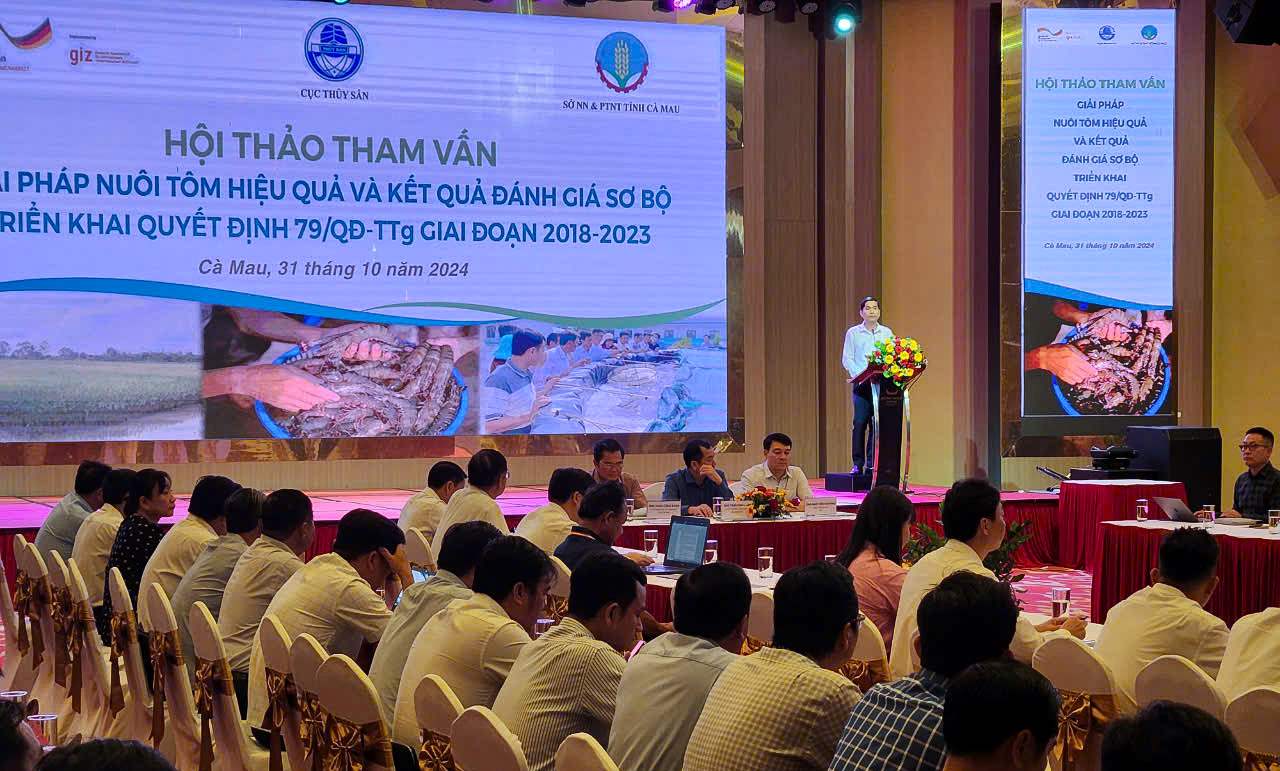Shrimp farming faces many difficulties
The Department of Agriculture and Rural Development of Ca Mau province said that in 2024, the development of shrimp farming in this province will have many positive changes, rapid changes in production structure, application of technology in production contributing to increasing productivity and output of farmed shrimp, improving people's lives.
However, shrimp farming in this province still faces many difficulties and challenges. "The impact of climate change, unusual weather changes; diseases on farmed shrimp still occur; the environment of shrimp farming areas has not been well controlled; input material prices always tend to increase, while raw shrimp prices have times decreased sharply, especially white-leg shrimp prices; the application of science and technology is still limited; infrastructure serving development has not met... affecting the production activities of farmers" - a representative of the Department of Agriculture and Rural Development of Ca Mau shared at the Workshop on consulting effective shrimp farming solutions and preliminary assessment results of the implementation of Decision 79/QD-TTg in the period of 2018-2023.
Also at this workshop, the Department of Agriculture and Rural Development of Kien Giang province said that the biggest difficulty in brackish water shrimp farming in the first months of the year is that the price of raw shrimp is very low, making production unprofitable.
In addition, the El-Nino phenomenon has caused severe and prolonged heat, increased salinity and temperature, affecting the health of farmed shrimp. The disease situation is complicated and unpredictable.

Besides, the source of trained labor willing to work in the production environment in enterprises is still scarce, so production expansion is also affected.
According to the Department of Agriculture and Rural Development of Bac Lieu province, in the first months of 2024, the shrimp industry of this province faced many difficulties such as the current infrastructure serving shrimp production is still lacking and not synchronous; The waterway traffic network has not been promoted; the irrigation system and inland irrigation systems are silting up quickly, affecting production activities, especially during the dry season...

In addition, the development of super-intensive shrimp farming in the province has been quite rapid in recent times, while the application and implementation of solutions for wastewater and waste treatment in aquaculture is still limited...
Improve infrastructure, enhance competitiveness
Faced with the difficulties faced by the shrimp industry, the Department of Agriculture and Rural Development of the provinces has proposed many solutions. The representative of Kien Giang province said that it is necessary to build a community management model for concentrated farming areas applying sustainable aquaculture production standards such as: GlobalGAP, VietGAP, Good Aquaculture Practices (BAP), organic aquaculture, ecological farming and other international standards according to the requirements of the export market.
In addition, it is necessary to invest in completing the infrastructure system serving production, especially waste and wastewater treatment during the production process to ensure strict compliance with the provisions of the law on environmental protection corresponding to the type of farming. Encourage economic sectors to invest in technology transfer, build facilities for materials, equipment, and provide domestic services to proactively produce and reduce costs, and improve competitiveness in aquaculture.
Effectively carry out the transfer of science and technology, regularly warn people about market prices such as: raw shrimp prices; medicine, food, aquatic materials prices... to have plans for raising and harvesting to achieve high profits.

Meanwhile, Bac Lieu province proposed that the Ministry of Agriculture and Rural Development support investment in building an automatic environmental monitoring and warning system; support Bac Lieu and shrimp farming provinces in finding and transferring effective waste and wastewater treatment processes in aquaculture, especially in super-intensive shrimp farming.
Support training of highly qualified human resources, with sufficient access to modern technology, promptly solving industry challenges related to the environment...











